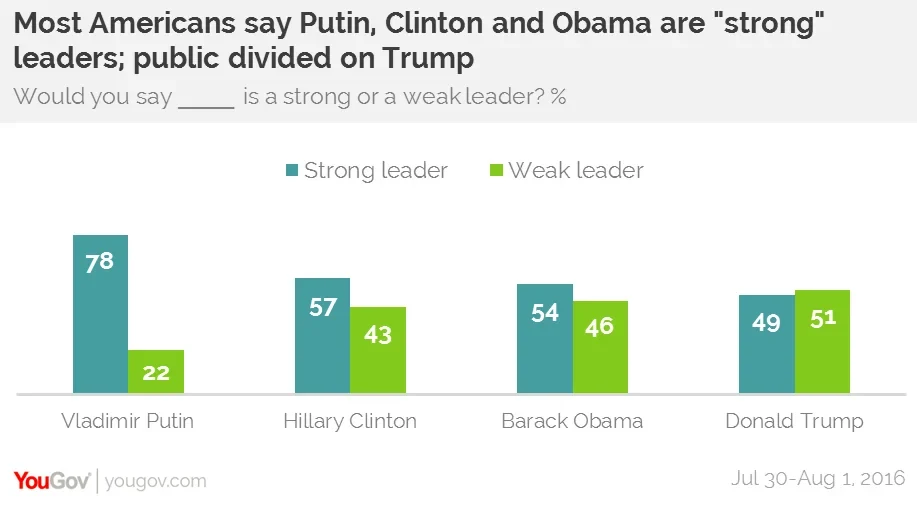Americans do think the Democratic National Committee favored Clinton during the primary, but only a minority think it was essential to her victory
Maybe it was because of Russia, or maybe not, but the Wikileaks publication of thousands of hacked emails from the Democratic National Committee gets praise or criticism, depending on one’s political point of view. But the event brought out political controversy, and in the latest Economist/YouGov Poll, most Americans – and even a third of Republicans – think Donald Trump’s call to Russia to “find [Hillary Clinton’s] 30,000 emails that are missing” from the private server she used when she was Secretary of State inappropriate.
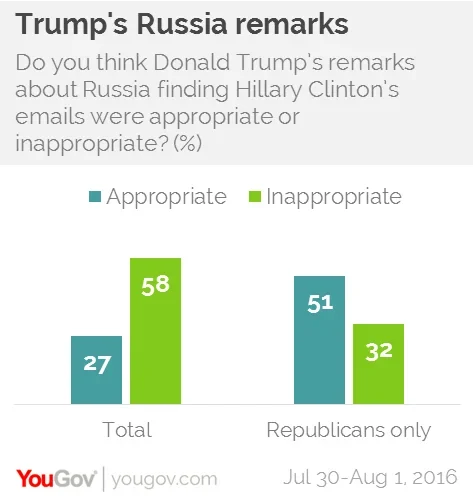
There is a difference based on partisanship between those who see Trump’s statement as sarcasm (as he later claimed) and those who view it as serious. By more than two to one, Democrats view it as a serious request, while by nearly three to one Republicans say Trump was sarcastic.
Those taking government emails and publishing them are evaluated based on what those emails are about, and who is embarrassed by them. Three years ago, when Bradley (now Chelsea) Manning was on trial for leaking classified emails, Americans held an unfavorable view of Wikileaks, though Democrats were more favorable than Republicans towards the organization. Now, after the leaks of the Democratic National Committee emails, Republicans are more favorable than Democrats towards Wikileaks.
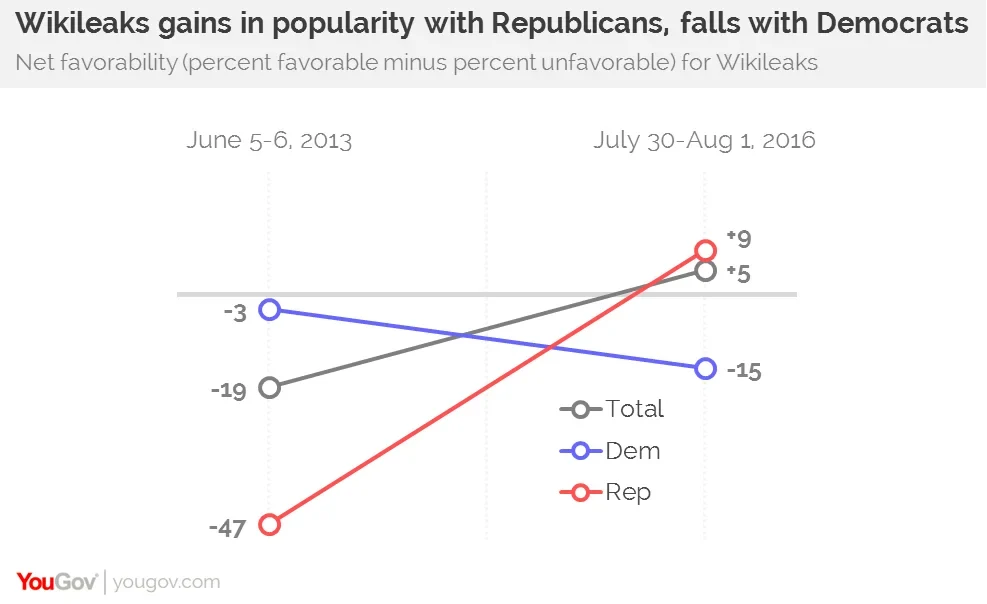
(When Americans evaluate Edward Snowden, the government contractor who leaked classified information in 2013, there is little partisan difference.)
The DNC clearly was damaged by the email leaks. Only 10% of Americans and only 11% of Democrats believe Debbie Wasserman Schultz should not have resigned after the leak. By more than three to one, Americans have an unfavorable view of her. And 60% of the public thinks the DNC was biased in favor of Clinton. Even a majority of Clinton’s voters agree.
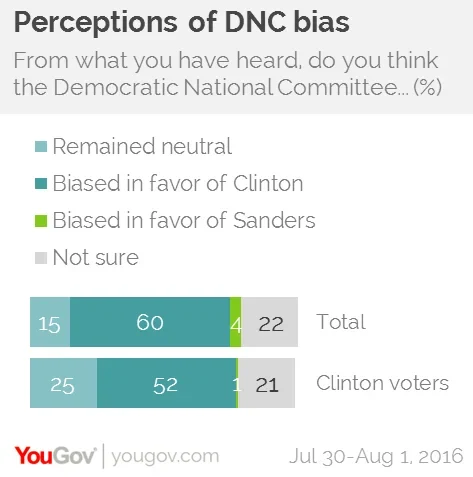
Responses to at least one of the questions about the DNC leaks underscore the difficulties the Clinton campaign has convincing many Sanders supporters that the former Secretary of State won the nomination fairly. More than half of Sanders voters believe that she would not have been nominated had the Democratic National Committee not covertly helped her campaign.
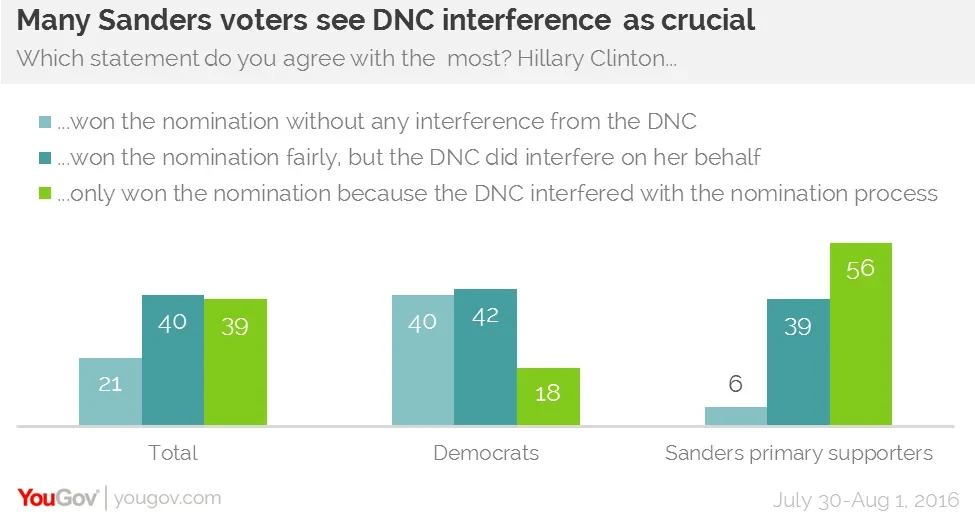
Overall, six in ten Americans believe Clinton won the nomination fairly, though many think she had help.
While some see a positive reason for the leaks (for example, “to expose problems with the organization to prevent future abuses”), Americans are more likely to see the leak as an attempt to hurt Hillary Clinton’s campaign.
While majorities lack confidence that Trump or Clinton would be able to deal wisely with Russia, Clinton does score better. The public is divided evenly on her ability to deal with Russia, but by two to one, they are uneasy about Trump’s capability.
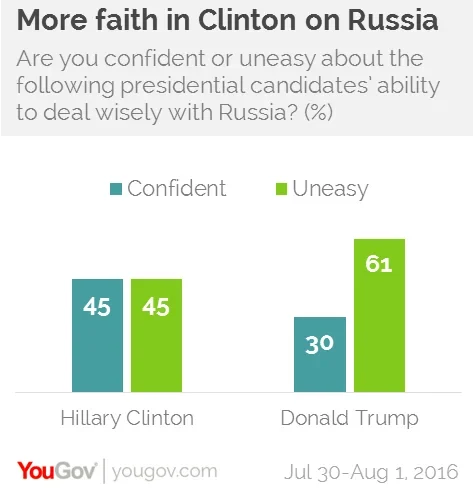
These opinions mirror some of the other responses seen in this poll: Clinton fares much better than Trump when it comes to being viewed as ready to serve as Commander-in-Chief, and as someone with the qualifications to be President.
Americans are closely divided on whether Russia was responsible for the leaked DNC emails: 29% think it was, while 22% say it was not. The differences are partisan, with Democrats much more willing than Republicans to blame Russia. However, both parties agree on how to characterize Russia in general: two in three Americans see Russia as unfriendly or even an enemy of the United States, and nearly as many have an unfavorable opinion of its President, Vladimir Putin. Only 17% are positive about Putin. But more see Putin as a strong leader than view either U.S. party’s nominee that way -- and more see Putin as strong than think that is true of the current President.
